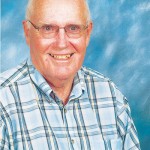
On March 8, John MacLean will discuss his book “The Esperanza Fire: Arson, Murder, and the Agony of Engine 57” at the Rustic Theatre. MacLean spoke to the Town Crier, Sunday, Feb. 24, about the book and his writing on wildland fires.
MacLean has written three other books about wildland fires. The first was “Fire on the Mountain” published in 1999. Then followed “Fire and Ashes” and “The Thirtymile Fire” in 2007.
In October 2006, five U.S. Forest Service firefighters — Captain Mark Loutzenhiser, Fire Engine Operator Jess McClean, Assistant Fire Engine Operator Jason McKay and firefighters Daniel Hoover-Najera, and Pablo Cerda — perished in the tragic fire.
Why choose wildfires as a subject?
“I didn’t choose it, it chose me,” MacLean replied. His father, Norman MacLean, author of “A River Runs Through It,” started a book about the Man Gulch Fire of 1949. He died before finishing the book.
“It fell to me and the family whether to publish it,” he said. After a discussion with the University of Chicago Press, MacLean finished his father’s book, “Young Men and Fire,” and he learned how important it became to many of the people involved or related to participants.
After the book was published, he wrote or went to see many of the people still alive. The nephews of one of the men who died never knew much about their uncle because his sister, their mother, couldn’t speak much of him after his death. But the book opened a discussion and stories poured out, according to MacLean.
“It had an effect on the survivors of the tragedy,” he noted. “I didn’t know a book could have that effect.”
Then in 1994 the South Canyon Fire occurred. It was the mirror image of Mann Gulch. When the Chicago Tribune suggested he cover the fire, MacLean considered it and countered that a story about the two fires would be more interesting.
His story was published in the paper and eventually became his first book. He left the Tribune to write “Fire on the Mountain.”
How did MacLean learn about Esperanza Fire?
“I keep getting drawn in,” MacLean explained. “Forest Service staff came to me at a conference in Reno and wanted to work with me.” Nearly six years after the Esperanza Fire, MacLean’s book is now published.
“It’s really a community effort, but I get the byline,” he said. He involves everybody in reviewing drafts and talking about their memories. He’s been to Southern California several times, including covering the trial of Raymond Oyler for arson and murder in the winter of 2009.
MacLean knew about the fire, but one impediment to doing a book was a CAL FIRE order telling staff to avoid discussing it and other Southern California fires with “Bob” McLean. Without access to all the participants, MacLean didn’t consider it until the Forest Service people encouraged his active participation.
CAL FIRE’s reason was to protect the prosecution of Oyler. Not only was he charged with arson, but also murder and they didn’t want any erroneous or contradictory statements to damage the prosecution effort.
But the Forest Service staff convinced him it was a Forest Service story, not CAL FIRE and he jumped in. “They’ve stuck with me from beginning to end,” he said. “It’s been a huge amount of time and effort.” MacLean has spoken or interviewed more than 30 people for the book, including the families of the victims and Oyler.
One of the many contributions that Forest Service staff has provided MacLean is a thorough understanding of the responsibilities and functions of an engine crew. Chris Fogle, San Jacinto Ranger District Fire Battalion Chief, explained that MacLean’s previous books were mostly about smokejumpers, hand crews and hotshots.
“All micro-fire units have their own culture,” Fogle said. “We also demonstrated a hose lay with an engine crew. We spent hours on the phone and meetings discussing the strategy and tactics of an engine crews and fire behavior.”
Fogle also explained how many misconceptions, which started by the immediacy of the news cycle once the fire started, had to be corrected and explained.
“The Esperanza Fire” is MacLean’s fourth wildfire book, and he hopes it’s his last.
“I think I’m done, I won’t top ‘Esperanza.’ We don’t want another horrific fire,” he said. Besides the tragedy, MacLean was also referring to the time and effort to write the book.
While he is not independently wealthy, MacLean does have other income that allowed him to travel, research and interview people about the Esperanza Fire for five years. During most of that time, he worked without the safety net of a book contract.
Editor’s Note: Part 2 of the interview will appear in the March 7 issue of the Town Crier. MacLean will discuss the various agency reports, the trial, the jury and Oyler.










